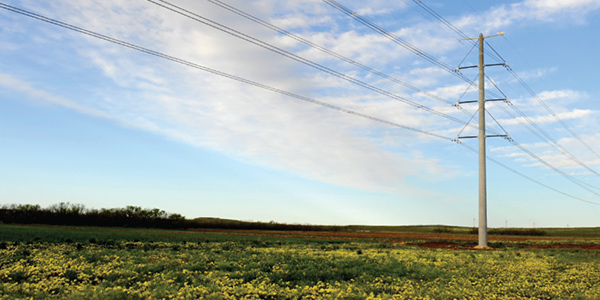By Tom Kleckner
NextEra Energy on Monday filed a federal lawsuit challenging the constitutionality of a recent Texas law giving incumbent utilities the right of first refusal (ROFR) to build transmission projects in the state.
The suit argues that Senate Bill 1938, which was signed into law May 16, causes “injury” to NextEra’s subsidiaries by preventing their entry into Texas’ transmission development marketplace as regulated utilities. It said the bill also interferes with the companies’ ability to plan, invest in and conduct business operations in the ERCOT, MISO, SPP and Western Electricity Coordinating Council regions of the state (1:19-cv-00626).
“This case is about the very type of economic protectionism the Constitution was designed to prevent,” NextEra wrote, contending that SB1938 violates the U.S. Constitution’s Commerce and Contracts clauses.
Filed in the U.S. District Court for the Western District of Austin by NextEra Energy Capital Holdings (NEECH), the suit names Texas Attorney General Ken Paxton and Public Utility Commissioners DeAnn Walker, Arthur D’Andrea and Shelly Botkin as defendants. They have 21 days to file a response.
The lawsuit also calls out state lawmakers for caving to the interests of incumbent transmission owners and reversing a “long and successful history of holding itself as open for business” to new transmission entrants that didn’t already own transmission or hold PUC certificates of convenience and necessity (CCNs) to provide service.
“Despite this history, after facing competition, several of Texas’ traditional transmission and distribution utilities successfully lobbied the Texas Legislature to effectively close the border to further new entrants,” NextEra wrote. “The resulting law is discriminatory on its face, by preserving the opportunity to invest in and provide service over new transmission facilities in the state solely to entities that already own facilities and hold a certificate.” The law is intended to benefit local entities that already hold “the sole right to build transmission lines … in Texas, even when those transmission lines deliver power in interstate commerce,” the company said.
SB 1938 grants CCNs to build, own or operate new transmission facilities that interconnect with existing facilities “only to the owner of that existing facility.” (See Texas ROFR Bill Passes, Awaits Governor’s Signature.)
As written, the legislation endangers a pair of transmission projects previously awarded to NextEra subsidiaries.
NextEra Energy Transmission (NEET) Midwest last November won a competitive bid from MISO for the Hartburg-Sabine project in East Texas, which would consist of a new 500-kV line, four 230-kV lines and a 500-kV substation. MISO executives acknowledged Tuesday that the congestion-relieving project “may face challenges as a result of recent Texas legislation,” casting its future into doubt. (See related story, Uncertainty Deepens for Hartburg-Sabine Project.)
NEET Southwest has a CCN application pending before the PUC to transfer ownership of 30 miles of 138-kV facilities from Rayburn Country Electric Cooperative in SPP’s region of East Texas.
In contesting the bill before its passage, NextEra had countered concerns by legislators that out-of-state transmission companies might be less reliable than in-state companies by pointing to the Texas’ Competitive Renewable Energy Zone buildout, a $7 billion effort that resulted in 2,800 miles of new transmission facilities. NextEra said the “small number” of out-of-state companies brought into ERCOT to run CREZ lines has “successfully shown that out-of-state new entrant transmission service providers are just as reliable as in-state traditional transmission and distribution utilities.”
Joining NEECH as plaintiffs in the lawsuit are NEET, NEET Midwest, NEET Southwest and Lone Star Transmission, which built 330 miles of 345-kV transmission lines for ERCOT as a part of CREZ.
The PUC declined to comment on the lawsuit.





